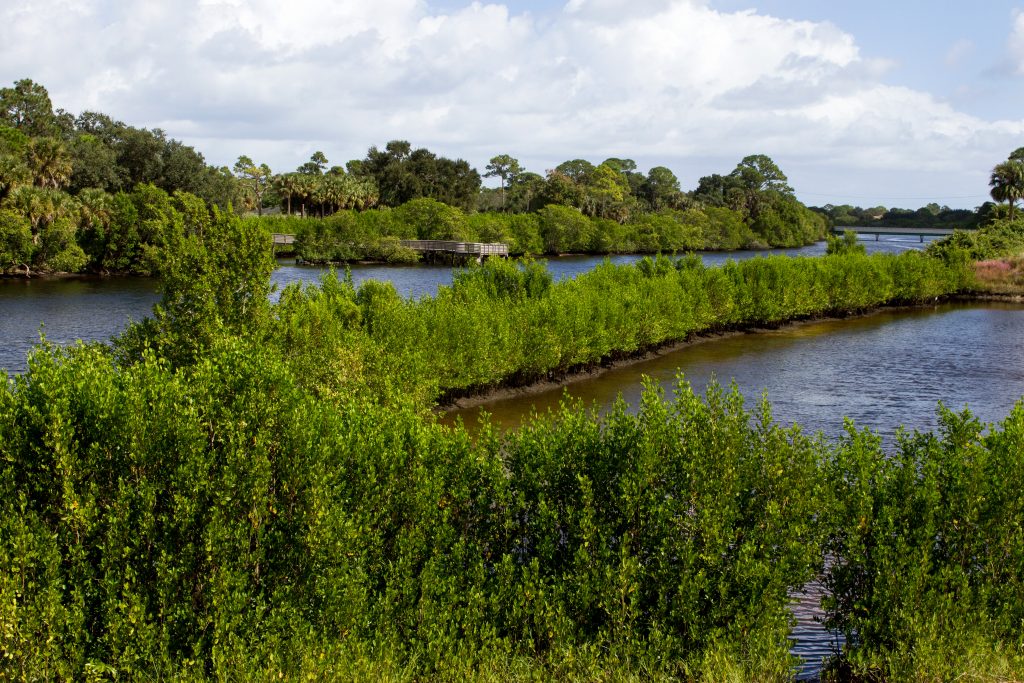CURIOUS TO SEE WHAT YOUR SEMESTER OF IMMERSION MIGHT LOOK LIKE?
TAKE A PEAK OF THE PAST TO GAIN PERSPECTIVE OF THE FUTURE.
In the Spring of 2018, the Biology Department launched the second Semester of Immersion. Nine courses were offered, and are described below. Three courses ran during each session. Please note, courses vary each Semester of Immersion, none are guaranteed to stay in rotation each time the immersion program is offered. If you would like course specific information, please reach out to the instructors listed in the course descriptions.
Spring 2018 Immersion Course Offerings
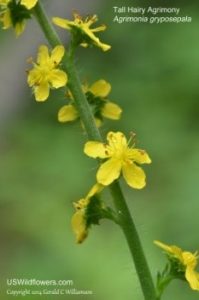 Session 1
Session 1
Plant Diversity- PCB4460
This course surveys the biological diversity of modern algae and land plants, with an eye toward understanding why studying plant diversity is important in our modern society. We will cover the traditional classification of plants, the evolutionary processes that generate biodiversity, and critically evaluate perceived threats to biodiversity. The course will include field trips to the Gulf and Atlantic coasts, Archbold Biological Station, and the mountains of North Carolina so that students can see examples of the species and experience first-hand the biological processes we discuss. We will develop a timeline of the main events in the history of photosynthetic organisms, an overview of their diversity, and a conceptual understanding of the processes that generate and maintain diversity.
Instructor: Stuart McDaniel |213 Bartram Hall | stuartmcdaniel@ufl.edu
Format: Daily lectures, projects, discussion, fieldtrips, wrap-ups.
Required Text: TBA
Expected costs: roughly $350 for overnight trips, lodging, and excursions.
Class Meeting Time (while at UF): T,R | Period 2 – 5 (8:30 AM – 12:35 PM)
Tentative Dates for Field Experience: During the last week of class, February 2nd- February 9th.
 Session 1
Session 1
Infectious Disease Epidemiology- PCB4917
This course provides an overview of human infectious diseases and their dynamics. After an initial look at how epidemics grow and the ways different professions think about diseases, each week will focus on a different mode of transmission (e.g. air borne, food and water, sexual interactions) and the associated diseases. As epidemiology is a highly integrative field, we will talk about everything from microbiology to statistics, pharmacology to public health decisions.
Instructor: Tom Hladish | 420 Carr Hall | tjhladish@ufl.edu
Format: lectures, discussions, oral & written projects, no exams.
Expected Costs: No course fees, class held on main UF campus.
Notes: You will need access to a laptop to take this course.
Tentative Course Schedule:
Class will meet every weekday (M,T,W,R,F) in ARCH 120 during periods 4 & 5 (10:40-12:35).
| Week | Monday | Tuesday | Wednesday | Thursday | Friday |
| Jan 8 – Jan 12 | Introduction | Ch 1 & 2 discussion | Disease dynamics | Simulation assignment | Simulation assignment |
| Jan 15 – Jan 19 | Holiday – No class | Ch 3 discussion | Disease distribution essay | Ch 5 discussion | Press release exercise |
| Jan 22 – Jan 26 | Ch 4 discussion | STI projects | STI projects | TBD | Dengue lecture |
| Jan 29 – Feb 2 | Ch 6 discussion | VBD proposals & group work | VBD presentations | VBD presentations | Project proposals due |
| Feb 5 – Feb 9 | Project draft due | Project critiques | Project critiques | Final presentations | Final presentations
Final essay due |
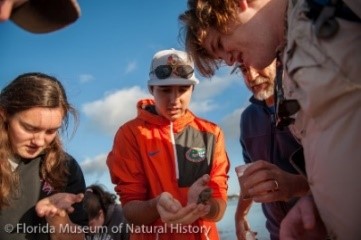 Session 1
Session 1
Invertebrate Biodiversity on Coral Reefs –
ZOO4205C/ZOO6927
This graduate and undergraduate course takes advantage of the rich biota of the Bahamas and Florida to investigate animal organization, evolution, and biodiversity. It emphasizes comparative study of form and function, in phylogenetic and environmental contexts. Students will study living representatives of diverse animal phyla in the lab and field. About 3 weeks will be at a field station in San Salvador studying diverse reef biota, the remainder in Florida.
Instructor:Gustav Paulay | 228 Dickinson Hall | paulay@flmnh.ufl.edu
Format: Lectures, labs at UF field stations, field trips.
Required Text: Suggested text: TBA
Class Meeting Time: M,T,W,R,F | Period 3 – 4 (9:35 AM – 11:30 AM)
Expected costs: roughly $3,091. This course fee includes: Tuition for 4 UF GPA credits, all accommodations, transportation, and meals while in San Salvador, and international health insurance.This course fee DOES NOT include: travel to and from San Salvador, additional personal travel, and optional personal expenses.
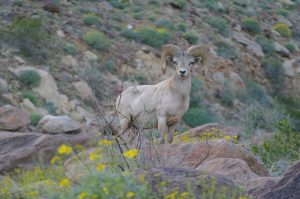 Session 2
Session 2
Desert Biodiversity- PCB4460
In this course you are invited to enter a strange and wonderful ecosystem and learn about plants and animals found there. 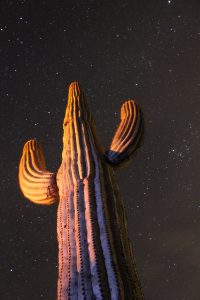 We will explore the habitats, evolutionary history, and ecosystem-level processes particular to xeric environments. We will begin with a two-week directed study consisting of readings, discussions, and begin work on an individual project designed to help you take full advantage of a capstone 14-day field experience in the deserts of the South West USA. We will visit a series of stunning localities (and local experts) and explore the amazing adaptations of plants and animals to survive in this region.
We will explore the habitats, evolutionary history, and ecosystem-level processes particular to xeric environments. We will begin with a two-week directed study consisting of readings, discussions, and begin work on an individual project designed to help you take full advantage of a capstone 14-day field experience in the deserts of the South West USA. We will visit a series of stunning localities (and local experts) and explore the amazing adaptations of plants and animals to survive in this region.
Check out past students’ field observations: desertbiodiversity.wordpress.com
Instructor: Norm Douglas | 618A Carr Hall | nadouglas@ufl.edu
Format: Introductory activities, lectures, field research in AZ and CA, data analysis.
Required Text: No textbook is required.
Expected costs: $400, plus airfare to and from Las Vegas.
Class Meeting Time (while at UF): M,T,W,R,F | Period 6 – 8 (12:50 PM – 3:50 PM)
Tentative Dates for Field Experience: March 12th- March 21st (traveling to Las Vegas on March 11th, returning to Gainesville March 22nd)
Session 2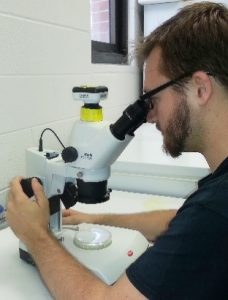
Molecular and Genetic Responses to Environmental Stress- PCB4917
Natural and man-made changes in the environment can put tremendous stress on the ability of organisms to maintain homeostasis, affecting human health, agriculture, and biodiversity. You are invited to come explore fundamental principles of cellular homeostasis and learn modern molecular and genetic research tools that are revealing unprecedented insights into how cells detect environmental stress and activate protective genes/ proteins.
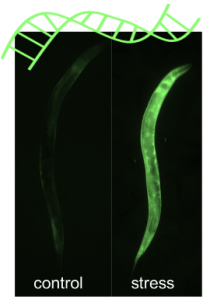
Instructor: Keith Choe | 321 Bartram Hall| kchoe@ufl.edu
Format: Introductory activities and lectures, laboratory research, fieldtrips in Florida.
Notes: Est. cost to attend: $300 for reagents and field trips.
This course has a limited number of seats- apply toady to ensure your spot! To apply click this link: here!
Applications are due Friday, November 17th, 2017 by 11:59pm.
Tentative Course schedule: Class will meet in Carr Hall 110 T,W,R,F | Period 3 – 4 (9:35 AM – 11:30 AM) and R,F | Period 5 (11:45 AM – 12:35 PM)
Week 1 (2/12/18)
Lecture and discussions – introductions; syllabus; review of basic cell, gene, and protein structure and function; methods in molecular biology
Lab – model organisms and introduction to C. elegans, C. elegans anatomy, life cycle, and behavior; PCR and DNA primer design
Fieldtrip – UF ICBR tour
Week 2 (2/19/18)
Lecture and discussions – introduction to stress, negative feedback, gene regulation, protein regulation, and cell signaling, the heat shock response
Lab – PCR, semi-quantitative and qPCR of the heat-shock response
Fieldtrip – UF aquatic toxicology labs
Week 3 (2/26/18)
Lecture and discussions – introduction to stress responses (Nrf, insulin/IGF-like)
Lab – transgene reporters as markers for gene and proteins (microscopy and sorting)
End of lectures exam
Week 4 (3/5/18) – SPRING BREAK
Week 5 (3/12/18)
Lecture and discussions – student-led discussions of stress responses
Lab – analysis of transcriptomic data, student projects
Fieldtrip – UF pharmacogenomics lab
Week 6 (3/20/18)
Lab – student projects and presentations
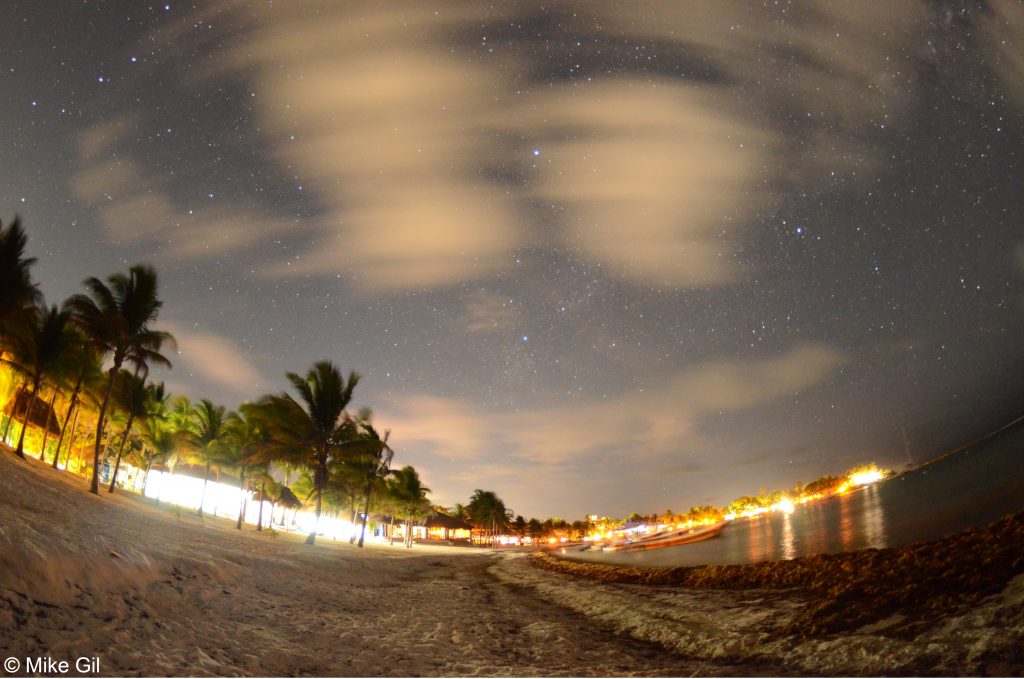
Session 2
Marine Ecology- ZOO4926
Instructor: Mike Gil | Email: m.gil@ufl.edu
Format: Introductory activities, lectures and discussions at UF (7, 2-hour meetings), immersive (literally) field research in Mexico: data collection, analysis, interpretation and presentation
Required Text: Required readings will be provided for free, in PDF form.
Estimated Costs: $2,867. This includes: tuition for 4 UF GPA credits, all accommodations, transportation, and meals while in Mexico, and international health insurance. The course fees DO NOT include: Round-trip airfare to Akumal, additional personal travel and optional personal expenses.
Class Meeting Time (while at UF): M,T,W,R,F | Period 9 – 10 (4:05 PM – 6:00 PM)
Tentative Class Schedule: Tentative_schedule_Marine_Ecology_Akumal_2018_v1
Session 3
Treetop Biodiversity – PCB4460
 Come join us for some extreme botany! This course partners with Gainesville’s Danny Lyons and Canopy Climbers to provide a unique field research experience: we’ll climb and sample botanical diversity in the treetops!
Come join us for some extreme botany! This course partners with Gainesville’s Danny Lyons and Canopy Climbers to provide a unique field research experience: we’ll climb and sample botanical diversity in the treetops!
The forest canopy, especially in tropical and subtropical regions, hosts a rich diversity of life. Epiphytic vascular plants (those growing among the branches of larger plants, such as trees) may represent as much as 10% of all plant species on Earth, and non-vascular plants are abundant in the moist and shaded regions of the treetops. Botanists have only begun to catalog canopy diversity in the last few decades, since collection methods have become safer and easier to use. After a literature review and discussion of hypotheses, we’ll design our own vertical transects, then visit three habitats (the hydric hammock, a cypress dome, and a tropical hardwood hammock – locations TBA) to climb trees and survey canopy botanical diversity. Each field trip will be followed by laboratory time to identify and produce voucher specimens of the plants we collect.
Danny Lyons and Canopy Climbers will provide the tree climbing equipment and all climbing and safety training.
Tentative course schedule
| Week | Monday | Tuesday | Wednesday | Thursday | Friday |
| 1: March 26-30 | Introduction
1 hour meeting Time/location TBA based on mutual agreement |
Discussion of readings
2 hour meeting in Carr 110, time TBA based on mutual agreement, during range of periods 3-9 |
Read/work on your own | Hypothesis generation and experimental design
2 hour meeting in Carr 110, time TBA based on mutual agreement, during range of periods 3-9 |
Mini symposium
1 hour meeting Time/location TBA based on mutual agreement |
| 2: April 2-6 | Climbing and sampling Overnight field trip to begin on Sunday | Open lab hours in Carr 110 – periods 3-9 – come to complete required work during a time that works best for you | Read/work on your own | Open lab hours in Carr 110 – periods 3-9 – come to complete required work during a time that works best for you | Mini symposium
1 hour meeting Time/location TBA based on mutual agreement |
| 3: April 9-13 | Climbing and sampling Overnight field trip to begin on Sunday | Open lab hours in Carr 110 – periods 3-9 – come to complete required work during a time that works best for you | Read/work on your own | Open lab hours in Carr 110 – periods 3-9 – come to complete required work during a time that works best for you | Mini symposium
1 hour meeting Time/location TBA based on mutual agreement |
| 4: April 16-20 | Climbing and sampling Local trip, no overnight stay | Open lab hours in Carr 110 – periods 3-9 – come to complete required work during a time that works best for you | Read/work on your own | Open lab hours in Carr 110 – periods 3-9 – come to complete required work during a time that works best for you | Mini symposium
1 hour meeting Time/location TBA based on mutual agreement |
| 5: April 23-25 | Read/work on your own | Open lab hours in Carr 110 – periods 3-9 – come to complete required work during a time that works best for you | Final symposium
1 hour meeting Time/location TBA based on mutual agreement |
Instructors: Christine Davis | 614 Carr Hall | christine.davis@ufl.edu & Norm Douglas | 618A Carr Hall | nadouglas@ufl.edu
Format: Research projects, lab meetings, and fieldtrips.
Required Text: None
Class Meeting Time (while at UF): T,R | Period 3 – 9 (9:35 AM – 4:55 PM)
Expected Costs: $650 including lodging, climbing equipment, lab supplies, field trips.
Session 3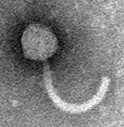
Phage Genomics – PCB4917
Learn about genetics, genomics, bioinformatics, and microbial biodiversity using bacteriophages (viruses that infect bacterial hosts) as a model. Many of the early discoveries in the field of genetics used bacteriophages and this course will immerse you in authentic research focused on these fascinating organisms.
As part of this class you will learn about genome assembly, the identification of genes in genome sequences, and the use of computational methods to predict gene function and understand genome evolution. By taking part in these efforts you will learn genomics in a hands on way and contribute to a larger project on bacteriophage biodiversity.
Instructor: Edward Braun |514 Carr Hall | ebraun68@ufl.edu
Format: lectures, data analysis, oral and written projects, no exams
Required Text: TBA
Class Meeting Times: M,W | Period 6 – 8 (12:50 PM – 3:50 PM) and T,R | Period 6 – 7 (12:50 PM – 2:45 PM)
Estimated costs: ~$100 for lab fees
Session 3
Ichthyology- PCB4460/ ZOO6456C
This graduate and undergraduate course will examine the diversity of fishes in the southeastern U.S. with an emphasis on Florida. Lectures, lab work, and research will take place on the UF campus during two of the five weeks and at three field stations on the Florida coast during the other three weeks: Whitney Laboratory for Marine Bioscience near St. Augustine, Seahorse Key Marine Laboratory near Cedar Key, and the Florida State University Coastal & Marine Laboratory near St. Teresa. All three stations have overnight facilities and laboratories for specimen examination and research activities. A diversity of marine, estuarine and freshwater habitats will be visited around each field station to explore the breadth of habitats and diversity of fishes in the region. In addition to phylogenetic relationships and identification, lectures, labs and research will emphasize the morphological, behavioral, and ecological adaptations of fishes living in different environments, with an emphasis on fishes encountered during field excursions.
Instructor: Larry M. Page| 282 Dickinson Hall |Email: lpage1@ufl.edu
Format: Daily lectures and labs at UF and coastal field stations, individual or group research projects
Required text: TBA
Class Meeting Time (while at UF): M,W,F | Period 3 – 6 (9:35 AM – 1:40 PM)
Estimated cost: ~$400- includes travel and lodging.
Tentative Course Schedule:
| Week | Location | Monday | Tuesday | Wednesday | Thursday | Friday |
| 1 (3/26) | UF, Whitney Lab | Carr 110 (course preview) | Whitney | Whitney | Whitney | Whitney |
| 2 (4/2) | UF, FSU | Carr 110 (project discussions) | FSU | FSU | FSU | FSU |
| 3 (4/9) | UF | Carr 110 (project discussions) | UF | UF | UF | UF |
| 4 (4/16) | UF, Seahorse | Carr 110 (project discussions) | Seahorse | Seahorse | Seahorse | Seahorse |
| 5 (4/23) | UF | Carr 110 | Carr 110 (project presentations) | Carr 110 | Reading Day | Reading Day |
*Note: Time at Whitney, FSU and Seahorse Key field stations will be split among lectures, fieldwork, specimen identification, and data generation for individual projects. Time on campus (Carr 110) will be split among lectures, labs, discussions and project presentations.
